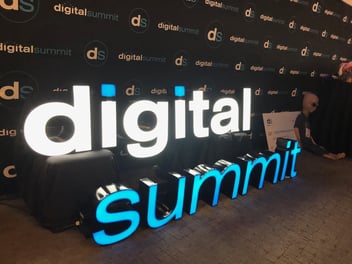So, is it an iPod touch or iPod Touch?
Well, if you're Apple's marketing team, it's "touch" -- but if you're a journalist following Apple, it could be either. If you read Apple's media coverage, you'll see both versions.
Nicole Stockdale, director of digital strategy at the Dallas Morning News and previously a copy editor there, has counseled fellow journalists not to let Apple's marketing language undermine grammar and style rules. Apple has a habit of using lowercase words in many of its product names, including iPad mini, watchOS, the recently retired iPod shuffle and iPod nano, and more.
As Nicole puts it: "Proper nouns are capped. And that means that iPod's Shuffle and Nano are capped, too, no matter what they want to do on their website or with their logo."
Inconsistency Is OK—If You're Apple
Is the resulting inconsistency a problem? Not for Apple. Its brand is so well-established that it doesn't really matter.
But for most companies, I'd argue that you're better off with a straightforward approach to capitalization in branding -- one that jibes with AP style, and that is consistent for both your logo treatment and the use of your company name in plain type.
The value in this approach is that it makes it much easier to enforce your brand standards -- not only with the media, but with employees, business partners, and customers, too.
For example, if I'm Apple, I've spent millions of dollars on advertising and marketing collateral to support iPod touch. I've supplied it to my retailers, I'm communicating it directly to customers, and I've promoted the branding internally to employees. And, I've got a marketing team that makes darn sure that every piece of material distributed by the company is consistent.
So if The Associated Press chooses to call my product "iPod Touch" in its coverage, so what? No biggie.
However, if I'm not Apple, and my product is called, say, "scott's b2b widget," it's a different story.
Do I really want my marketing campaign to have any more inconsistencies than it has to? If you get a sales email beseeching you to buy the new "Scott's B2B Widget" and then go to the website and see it called "scott's b2b widget," it starts to erode the image I'm trying to build. With enough inconsistencies, you ultimately will come to question the company's professionalism: "If these guys aren't on the same page, how are they going to deliver a superior product or service?"
Idea Grove is big believer in practicality when it comes to brand strategy. Our team doesn't like our clients to spend money when they don't have to.
Our clients don't necessarily have big bucks to put behind a product launch. They might be required to rely on public relations and word of mouth—which requires a brand message clear enough that it won't be lost in a third-party translation.
The client also might not have the marketing infrastructure to fully support their sales team's efforts, either; so, perhaps, the salespeople create some of their own sales emails and other materials, based on their interpretation of the brand and its message.
Brand Standards Communicate Consistency of Experience
I've found that even among large companies, enforcing brand standards can be difficult; often, however, the difficulties are self-created.
My advice, for consistency's sake, is to only create brand names that are first-letter uppercase. The one exception I'd consider is the so-called "camelcase," where the brand name starts with a lowercase letter but embeds an uppercase letter. (For example: iPhone, iPad, iPod.) For the most part, third parties catch on quickly to camelcase names, and the media is fairly consistent in accepting them.
Frankly, I think the "camelcase" is way overused -- but if you have to mess with your capitalization, it's probably the best option.

 3 min read
3 min read





 4 min read
4 min read

